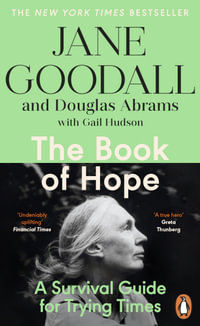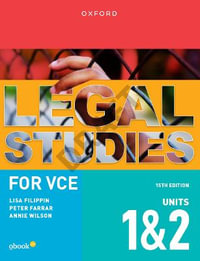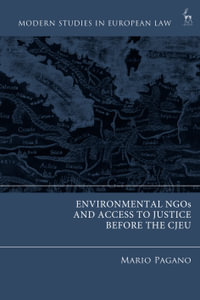The phone hacking trial was the prosecution of journalists from two of Rupert Murdoch's British newspapers, the News of the World and the Sun, for illegal newsgathering techniques. It was the climax of the new police inquiries carried out by Scotland Yard into the phone hacking scandal. For more than five years the News of the World had covered up the interception of the mobile phone messages of individuals from politics, showbusiness, sport, business and the law. The trial of its leading executives - which took place at the Old Bailey (Central Criminal Court) in London between October 2013 and June 2014 - became the longest concluded criminal trial in English legal history. This is the only book on the case. It lists the charges and legal teams, outlines the defence and prosecution case, and describes key moments, such as the testimony of Rebekah Brooks and Andy Coulson. At the start of the case, Brooks - a former editor of the Sun and the News of the World - and her friend Andy Coulson, also a former editor of the News of the World and until 2011 director of communications to the leader of the Conservative Party, David Cameron, stood next to each other in the dock.
Alongside them were five others: Charlie Brooks, Mrs Brooks' husband; her PA Cheryl Carter; Mark Hanna, News International's head of security; Stuart Kuttner; former managing editor of the News of the World; and Clive Goodman, the "rogue reporter" blamed for eavesdropping the Royal Family. They were variously accused of breaches of the Regulation of Investigatory Power Act 2000 (RPIA) relating to phone hacking); the corruption of a Ministry of Defence official and police from the Royal and Diplomatic Protection Squad (the common-law offence of Conspiracy to Commit Misconduct in Public Office); and conspiracy to pervert the course of justice, over the cover up of hacking by Murdoch's tabloid newspaper group, News International. The case attracted national publicity at its start and end - but little methodical scrutiny throughout. A small number of journalists who secured a press ticket watched the case's twists and turns. The author of this book, Peter Jukes, secured public donations for his coverage, becoming the first British journalist to be crowd-funded. He live-tweeted every day of the eight-month trial.
In this factual account he assesses why Coulson was convicted and Brooks acquitted, the influence of the millions of pounds spent by Rupert Murdoch on legal fees, and the failings of the Crown Prosecution Service. The case starred the best barristers at the Criminal Bar in England: Andrew Edis QC and Mark Bryant-Heron QC, for the Crown; Jonathan Laidlaw QC, for Rebekah Brooks; Neil Saunders for Charles Brooks; Timothy Langdale QC for Coulson; David Spens QC for Goodman; Trevor Burke QC Carter; and William Clegg QC for Hanna. The jury heard about the phone hacking of 30 victims, including Milly Dowler, a missing schoolgirl; David Blanket, the Home Secretary; Charles Clarke, another Home Secretary; Delia Smith, the TV cook and writer; and the Wayne Rooney, the Manchester United forward. The court also heard secret tape recordings made by Clive Goodman after his arrest and saw emails perpetuating the cover-up within News International. Other evidence involved the willingness of leading Labour politicians, including Tony Blair and Peter Mandelson, to assist Rebekah Brooks when the hacking of Milly Dowler emerged in July 2011.
Among the witnesses who have live evidence were Sir Michael Peat, a Buckingham Palace courier; the Labour politician Charles Clarke; and the actors Sienna Miller and Jude Law. The book is suitable for anyone interested in British law, the phone hacking scandal, Rupert Murdoch, or the linked Metropolitan Police investigations into newsgathering by English newspapers, Operation Caryatid, Operation Weeting, Operation Elveden and Operation Tuleta. It is the ideal companion to Dial M for Murdoch: News Corporation and the Corruption of Britain by Tom Watson and Martin Hickman; and Hack Attack: How The Truth Caught Up With Rupert Murdoch by Nick Davies. The book is dedicated to Alastair Morgan and the quarter of a century he had spent pursuing justice for his younger brother Daniel, murdered in 1987. Morgan had been working for a private detective agency in which the "dark arts" of tabloid newspapers had flourished.
Industry Reviews
This is perhaps one of the most absorbing books to do with journalism that I have read; for the duration that I was reading it, I did not want to do anything else.
I would read it on the train, then as I got home, as soon as everything had been dealt with, I would be reading. It’s the perfect book for a trainee journalist, or anyone who wants to know more about the trial, and its subsequent impact.
— Mademoiselle Women
Peter Jukes has written a fascinating account of the News Corp hacking trials, which he had live tweeted throughout.
— Independent Australia
This book, based on the half a million words tweeted during the trial, is a gripping reasoned account of the Hacking Trial. Anyone wishing to become a courtroom lawyer in the 21st Century should read it.
— Counsel

























